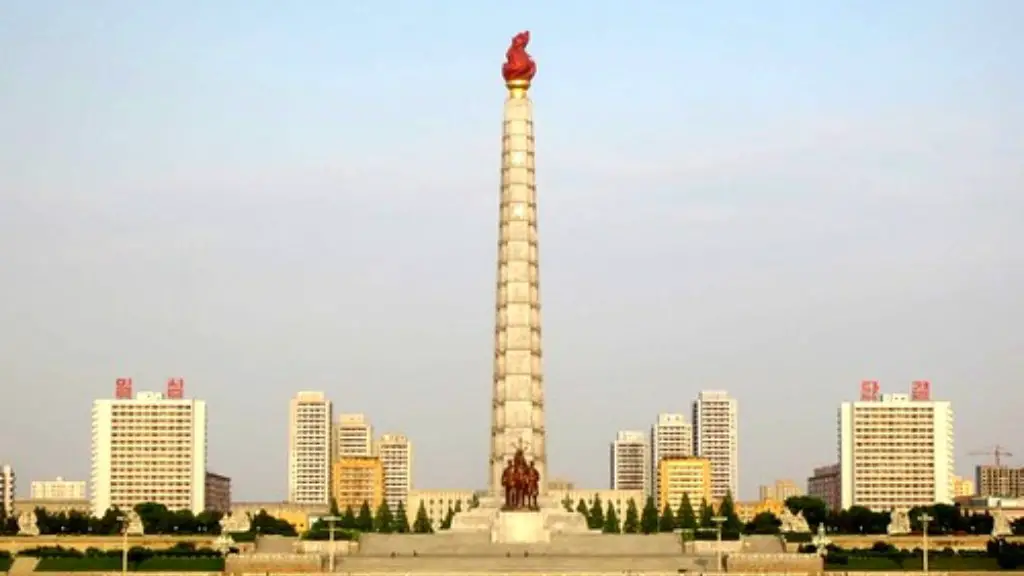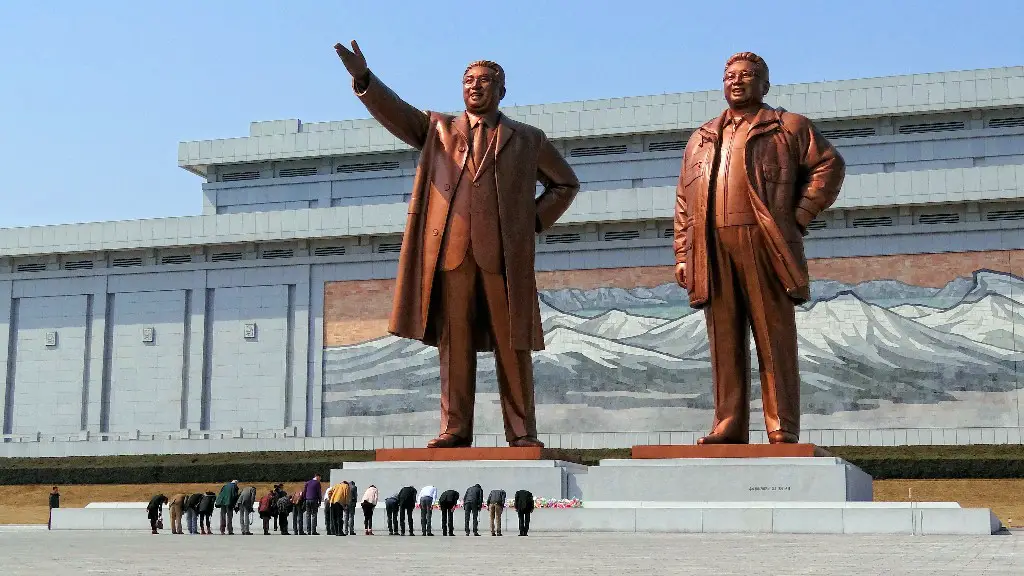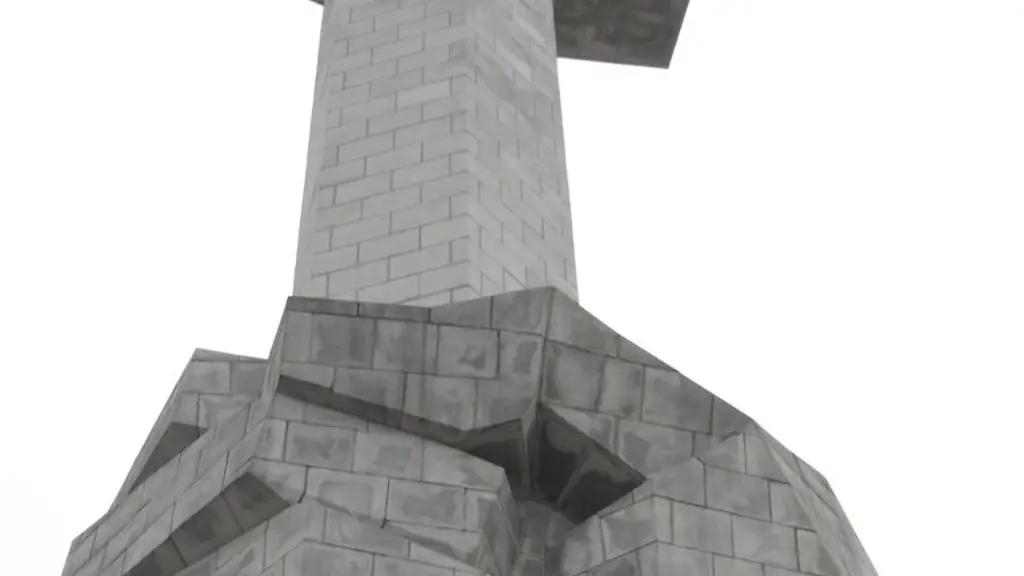Background Information
North Korea is a nation that seems to live in its own world, barely paying attention to the rest of us. Despite its reputation as a hermit kingdom, the nation is actually a member of the global community and is, in the eyes of many, slowly rising to the top of the list of places that should be closely monitored by the global powers. Don’t Tell My Mother North Korea is an effort to illustrate the unique and often dark reality of life in North Korea and let the world know what is savoured by its citizens and what is actually wrong with the nation.
North Korea is a highly militarized nation, wielding a formidable armed forces with nuclear weapons capability. In fact, the country is so isolated that it is estimated that millions of its citizens have died in the past several years due to starvation. North Korean government has tightly controlled all media input and interaction with outsiders, ensuring that virtually no accurate picture of life in the hermit kingdom is available.
Despite occasional reports that emerge from the isolated country, most Westerners have very little understanding of how the North Korean people live and cope with their poor economic and political situations. Suffice to say, life in North Korea is incredibly difficult for people. Most citizens are severely deprived of the basic necessities such as food and electricity, and the most serious issue of all is the massive lack of freedom under the oppressive government.
Slavery And Oppression
North Korea is a nation that thrives under a strict and oppressive system of slavery, where the rules are strict and adhered to strictly. North Koreans are forbidden from speaking out against the government and its decisions, with even family members facing punishments that range from humiliation and financial fines to detainment and even death because of words and beliefs that do not conform with the governments’ standards.
It is considered treasonous to question the authority of the government or its leader, and not just those who are brave enough to stand up are the ones that suffer consequences. It is estimated that more than 100 000 North Koreans are currently in prison camps in the country, where they are subjected to extreme brutality, torture and even death.
In addition to the oppressive political climate, North Koreans also endure incredibly harsh economic hardships. The country’s economy is heavily dependent on international aid, making it difficult for citizens to make ends meet. The nation’s economy is so severely crippled that many North Koreans are employed in the government as they have no other means of survival.
Life Of North Koreans
In spite of the harsh conditions in North Korea, the people are passionate and determined to create a better life for themselves. North Koreans will take on any sort of job to make an income, whether it’s a manual labor in the fields or a job in a factory.
The people are incredibly resourceful, using any means possible to make ends meet and survive. Despite their hardships, the North Korean people are incredibly strong and resilient, determined to make the best of their lives despite the difficult circumstances.
The life of a North Korean may be hard and oppressive, but the people of North Korea still have a rich culture. North Korea has a rich history in its own right, with rich cultures of music and dance that still exist today. Despite the oppressive environment, North Koreans are still incredibly passionate about their art and still possess a great sense of national pride.
Education In North Korea
Due to the extreme poverty and lack of resources, education in North Korea is severely neglected. There is virtually no access to the Internet or other global sources of information, and the limited resources that are available are heavily regulated.
As such, North Koreans are limited to the information provided by their government and have limited access to the global culture around them. Education in North Korea is focused more on the government agenda than real education and development.
North Korean students are taught to have utmost respect for the ruling Kim family and the government and are taught to view the world and their country from the perspective of the government. This means that critical thinking is not taught and is discouraged. The school system of North Korea does not foster creativity or independent thought, and instead focuses on instilling loyalty and obedience to the regime.
Persecution Of Powerless
The most vulnerable in North Korea are persecuted for their perceived faith and beliefs. Religious freedom, if it exists at all, is severely limited. North Korea is known for its persecution of religious minorities, especially Christians and those practicing any faith other than Atheism.
Members of non-sanctioned religions, such as Christianity, risk imprisonment and torture. North Korea also persecutes its LGBT community and has been known to forcibly terminate pregnancies of women suspected of carrying “foreign” babies.
The citizens of North Korea have faced a great deal of human rights violations, from arbitrary detainment and imprisonment, to cruel and unusual punishments, to torture and death. All who oppose the government are seen as traitors and criminals, and are severely punished. Citizens are constantly monitored and those who are believed to violate the law even in the slightest are often sent to prison camps.
Life Without The Kim Dynasty
Despite North Korea being under the grip of the Kim dynasty for decades, the people still have hope. They still have dreams of a better life and many have already begun to prepare for it.
A majority of North Koreans are still living in poverty and are desperate for better and more prosperous opportunities. The North Korean government may not be able to provide any of these opportunities, but it is still the people’s hope that one day the Kim dynasty will lose its grip and the North Korean people will be able to venture out into the world and build a better future for themselves and their country.
Humanitarian Aid
International humanitarian aid is one of the few ways in which the world has managed to reach out and help the oppressed North Korean people. Several organizations including the United Nations and various other international NGOs have provided food, medical assistance and aid to North Korea.
The aid that has been so far has made a tremendous difference in the lives of the people of North Korea. People have been healthier and have lived longer, even though their conditions are still not ideal.
Organizations have also provided assistance in empowering the North Korean people by offering them job skills, legal assistance and other services. Organizations such as Liberty in North Korea have also helped refugees to flee the country and find better opportunities.
Voices Of North Korea
Despite North Korea’s secretive nature, the North Korean people have managed to find a way to reach out and share their stories. The North Korean diaspora have started to set up platform where they can express their stories, feelings and thoughts.
These voices have become increasingly important in understanding the realities of the North Korean people and their struggles. International organizations such as Free North Korea Radio, Radio Free Asia and Voice of America are opening up new avenues for the citizens of North Korea to reach out to the world and share their stories.
Through these media portals, North Koreans are able to reach people around the world and share the truth about their situation. This is particularly important in connecting North Koreans to the international community and building empathy among its citizens.
Stories Of North Koreans
The courage and strength of the North Korean people have been so far overlooked and only recently have their stories been brought to light. One such story is that of Shin Dong-hyuk, the first known North Korean born in a prison camp to escape and tell his story.
Shin’s story has changed the way the world perceives North Korea, illustrating the terrifying truth of life in one of the world’s most oppressive countries. His courage and determination sparked international attention, as well as raising awareness about the horrific human rights abuses by the North Korean government.
Other North Korean refugees have also had the courage to share their stories, often involving grueling journeys across the border, separation from family and excruciating torture leading to escape.
These stories have become invaluable in giving the world an insight into the realities of life in North Korea. The stories of North Korean refugees have become one of the most effective tools in educating the world on the plight of the citizens of North Korea.
International Outreach
The international community have begun to recognize the importance of international outreach to the North Korean people in order to foster better understanding and build bridges between the two countries.
The US has recently become increasingly involved in North Korean affairs, with the Obama administration pledging to engage with North Korea and open lines of communication. North Korea’s participation in the 2018 Winter Olympics in 2018 serves as a testament to the improving relationship between the two countries.
The international conference, “The Berlin Conference on Combating the Human Rights Crisis in North Korea” was recently held with representatives from around the world in attendance. This conference serves as a platform for voicing concerns and raising awareness of the human rights abuses in North Korea.
The international community has also pledged to support the North Korean refugees and ensure that their plight is heard and taken into consideration. Through international attention and events, the human rights abuses in North Korea continue to be brought to light, reminding the world that there is a still a lot of work to be done to improve the situation of the North Korean people.


